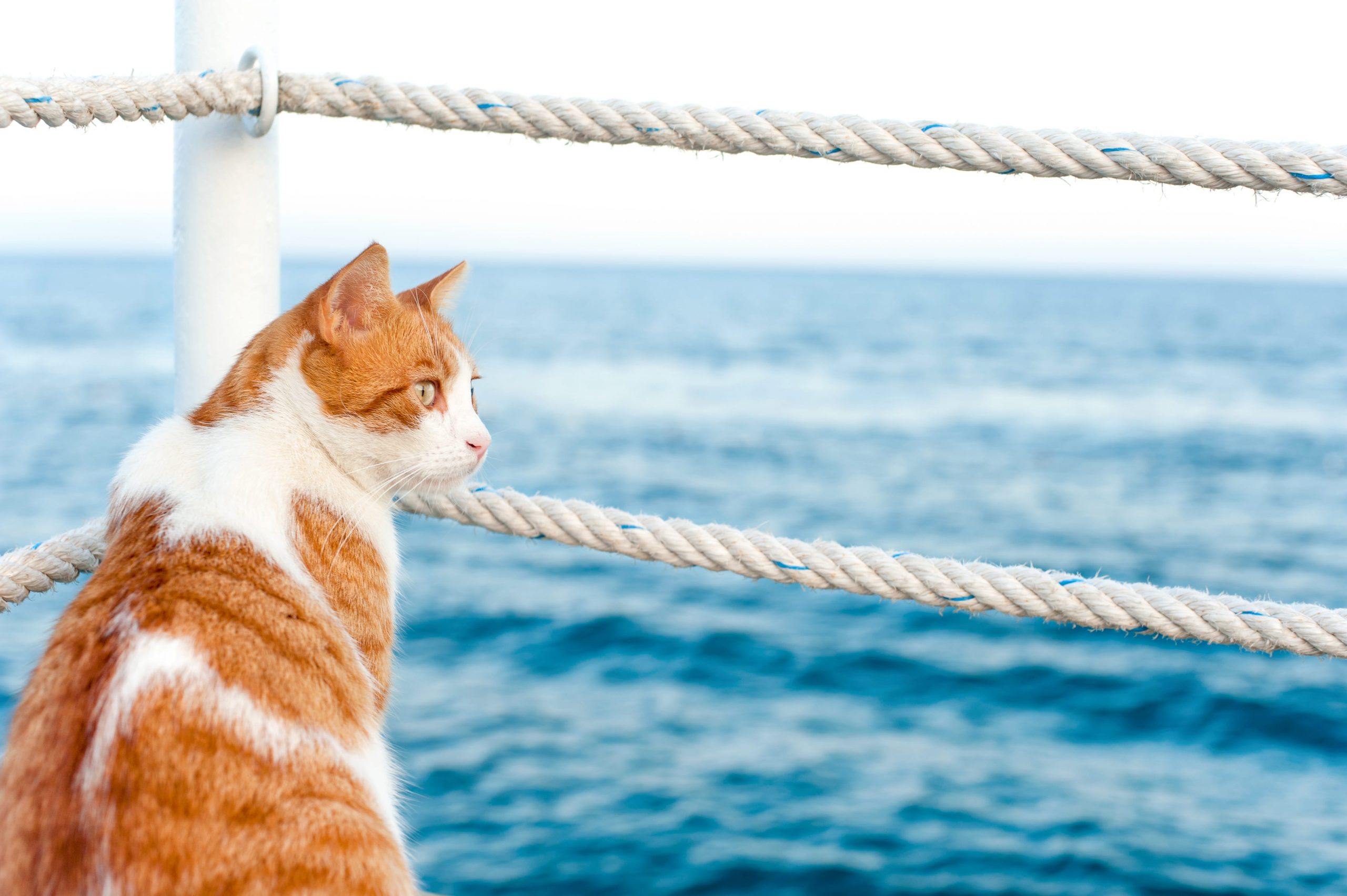Share This Article
ArrayA man from the Greek island of Evia has been arrested by police after he was caught kicking a kitten into the sea while dining at a local outdoor restaurant.
The shocking incident was captured on film by an onlooker, revealing the man’s horrifying behaviour and a woman laughing in the background.
In the footage, three people can be seen dining at the seaside restaurant as two kittens approach them, beckoning for food.
One of the diners then proceeds to dangle a small fish by the water’s edge, luring the felines to come closer.
When one kitten finally does come within inches from the side, it is then kicked into the sea below.
The disturbing video was widely shared to social media, and so vast was the outrage around the act of animal cruelty that the man was subsequently tracked down by Evia police and arrested.
In fact, the man was even publicly condemned in a statement by Greece’s police minister, Takis Theodorikakos.
“Violence against animals is unacceptable,” Mr Theodorikakos said.
“The government has passed a strict law on protecting animals from abuse which is now in effect, but in every case, this is a matter of humanity and culture.
“I am deeply saddened for those who abuse animals and for those who tolerate it.”
The minister went on to cordially congratulate the people who brought the matter to the public attention.
“I heartily salute those who pointed out the issue,” he said.
“The reason now belongs to Greek justice.”
If the offender is charged over the animal cruelty incident, he could face up to 10 years in jail.
He may also be hit with a whopping fine, the maximum, which under Greece law, is presently €50,000 (approximately AUD$73,460).
It is understood the kitten was found, and thankfully, unharmed.
It was left in the care of vets by locals.
Greece Ramps Up Penalties on Animal Cruelty
In In 2020, Greece passed a law that made animal abuse punishable by up to a decade in prison.
The measure, which was unanimously voted through parliament, was implemented to send a strong message to the community that animal abuse will not be tolerated and those who engage in the despicable act will be punished severely.
As such, the new law also certifies minimum one-year sentences and significant fines.
Under Greece law, animal abuse can include poisoning, hanging, mutilation and the drowning of animals.
As many who have travelled to the Greek islands may recall, the country is home to one of the largest populations of stray cats and dogs in the world.
In fact, animal rights activists estimate that in Athens alone, there are millions of street cats and dogs.
As a result, many restaurants and venues are animal-friendly and see cats and dogs roaming around freely.
It is not unusual for them to approach visitors for treats or to be petted.
Interestingly, in the United Kingdom, laws to tighten animal abuse penalties were also put in place, dating back to 2017.
Later, in June 2021, the maximum sentence for animal cruelty was then raised from six months in jail to five years.
At the time, a government report declared the new maximum penalty would allow courts to adopt a tougher stance on cases that involved dog or animal fighting, gross neglect of animals including farm animals, the abuse of kittens and puppies, and illegally clipping a dog’s ears.
Tough New Penalties for Animal Cruelty in NSW
Across Australia, animal cruelty is against the law and attracts substantial penalties. There are now tougher new penalties for animal cruelty offences in New South Wales.
In particular, if you are in NSW, you can expect to face some of the toughest new penalties, which came into play in June 2021 and are protected under section 5 of the Prevention of Cruelty to Animals Act 1979.
Section 5 states that a person is not to commit an act of cruelty upon an animal.
Additionally, a person in charge of an animal shall not authorise the commission of an act of cruelty upon the animal.
Furthermore, a person in charge of an animal is not permitted to fail at any time:
- to exercise reasonable care, control or supervision of an animal to prevent the commission of an act of cruelty upon the animal;
- where pain is being inflicted upon the animal, to take such reasonable steps as are necessary to alleviate the pain; or
- where it is necessary for the animal to be provided with veterinary treatment, whether or not over a period of time, to provide it with that treatment.
The penalties for any of the aforementioned offences will depend on who carried out the act of animal cruelty.
Where the act is carried out by a corporation, a maximum penalty of $220,000 applies.
Where the act is carried out by an individual, a maximum penalty of $44,000 and/or 12 months in jail applies. Prior to these new laws, the penalties were up to 6 months jail and/or $5,500 fine. The increase in the maximum penalties for these kinds of offences is a reflection of community expectations when it comes to cruelty to animals in New South Wales.
By Sahar Adatia.
Book a Lawyer Online
Make a booking to arrange a free consult today.
Call For Free Consultation
Call Now to Speak To a Criminal Defence Lawyer
Over 40 Years Combined Experience
Proven SuccessAustralia-Wide
Experienced LawyerGuarantee
 (02) 8606 2218
(02) 8606 2218
 (02) 8606 2218
(02) 8606 2218














